| |  | | | Stopping the Houthis--and Saving Yemen; A 'Freedom Corridor' for Syria's Druze & Kurds? By Winfield Myers ● Jul 28, 2025 Smart Brevity® count: 8.5 mins...2282 words This issue features four articles on Yemen and the Houthis, the terrorist organization that controls the North of that divided land. Drawing on his recent trip to the region, Jonathan Spyer reports that the Western-allied Southern Transitional Council is ready to stop the Houthis on the ground, but its forces need U.S. aid if they're to successfully prosecute the war. Michael Rubin, who also visited Yemen, advocates destroying that country's Houthi-occupied ports to cut off the Houthi's supply lines and end their attacks on Red Sea shipping. In a second article, he argues that it's time to dissolve Yemen's Presidential Leadership Council. Nicoletta Kouroushi explains why Greek-owned ships are the Houthis' favorite maritime targets. We feature two articles by Loqman Radpey, who writes that Syria's Druze and Kurds need a "freedom corridor" connecting them. Radpey also thinks the Kurds of Iraq should seize the moment to recapture lost territory. | | General of Yemen's Anti-Houthi Forces: Iran's Axis 'Can Be Stopped Here' 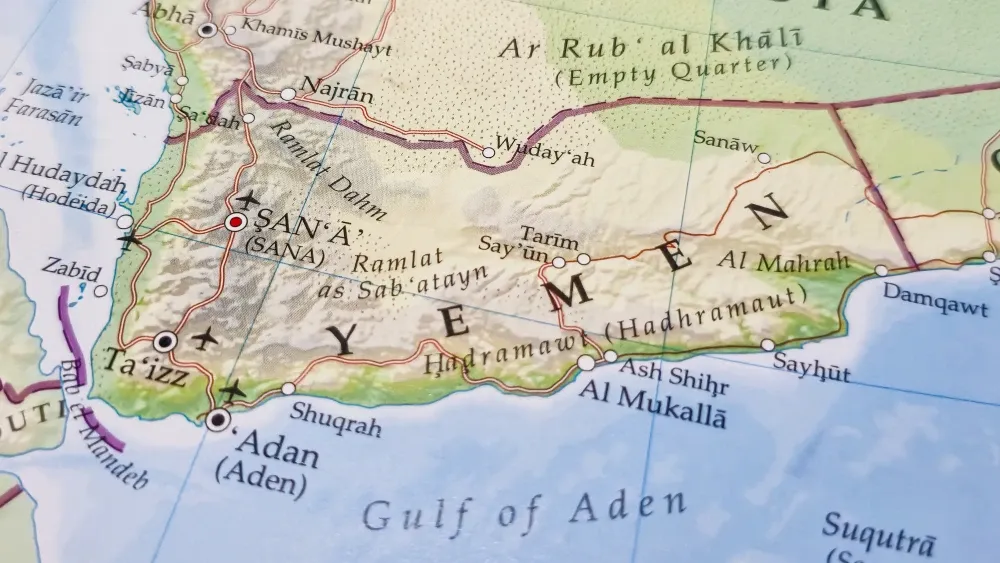 By: Jonathan Spyer Maj.-Gen. Salah al Hassan of Yemen's Southern Transitional Council (STC) is ready to counter the Houthis and potential collaborators like Amr Bin Habrish, deputy governor of Hadramout Province. Why it matters: The STC, a key player in South Yemen, seeks Western partners to push back the Houthis from the Red Sea coast. The big picture: Of the pro-Iran forces mobilized by Tehran to take part in the regional war against Israel under way since October 2023, the Houthis are unique in that they have not yet suffered any serious setback, and have not yet blinked. -
Despite a supposed ceasefire with the U.S., Houthi attacks on shipping lanes persist, such as the recent sinking two Greek owned, Liberian-flagged vessels, threatening international maritime security. What's next: The central issue facing both the STC and the various other forces aligned with the internationally recognized government, appears to be a chronic lack of equipment. -
The list of their needs includes: drones for reconnaissance (they appear to lack any capacity in this area), night vision equipment, light and heavy machine guns, and medium range artillery. -
Gen. Mohsen Derai, Yemen's defense minister, expressed shock at the U.S.'s unilateral ceasefire, emphasizing the need for coordinated military operations, which have yet to materialize. Real change is likely to come only when the Western and regional enemies of the Houthis decide that the situation is intolerable, and begin to build and equip a force capable, with air support from outside, of pushing the Iran-supported militia back from the coast – hopefully soon. To read the full article, click here. | | To Save Yemen, Destroy Its Ports? 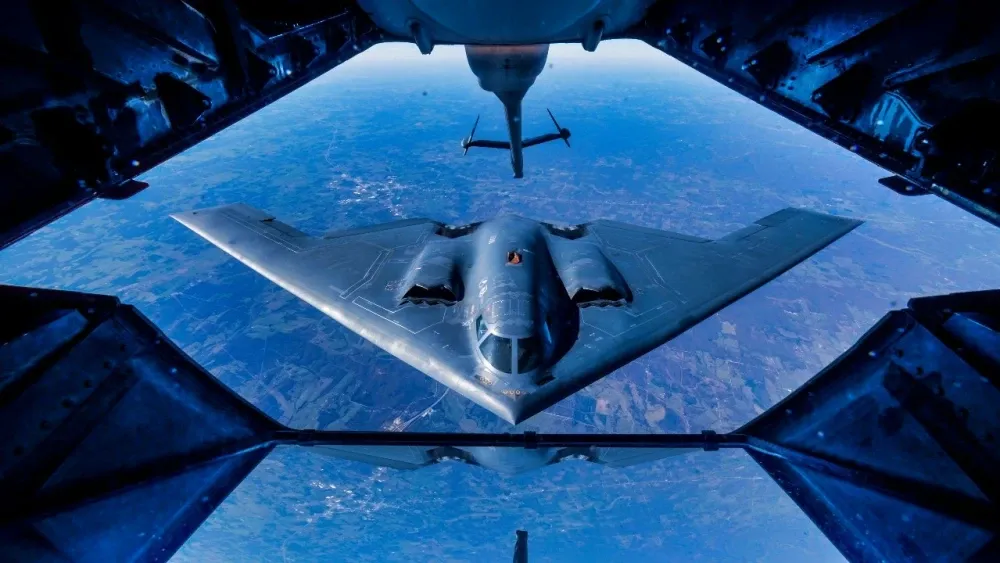 By: Michael Rubin The resumption of Houthi attacks on Red Sea shipping should surprise no one, as they use ceasefires to regroup and rearm, rather than seek peace. Why it matters: The Houthis' tactics threaten international shipping by discouraging vessels from using the Suez Canal and demanding protection payments, impacting global trade routes. -
They continue to exploit the ineffective Stockholm Agreement, which failed to halt their weapons acquisition and control over Hodeidah. -
The international community's reliance on the United Nations' inspection regime has proven ineffective, exacerbating the situation. The big picture: The Stockholm Agreement was meant to ease Yemen's humanitarian crisis but has instead preserved Houthi control over crucial ports, worsening conditions. What's next: A get-tough approach is necessary, including potentially destroying port facilities at Hodeidah and Salif to cut off Houthi supply lines. -
Rather than double down on a failed strategy and embrace the fiction that the Stockholm Agreement works, it is time to recognize that keeping Hodeidah open does not save lives; it costs them. A Yemen free from Houthi tyranny requires Aden resuming its rightful place as the gateway to South Arabia and Yemen. To read the full article, click here. | | ICYMI – The Forum Roundtable: Islamism and Antisemitism in Academia  College campuses have become ground zero for the world's antisemites to take advantage of democratic norms to espouse their hatred of Jews and the Jewish homeland while coupling their vitriol with physical acts of abuse and intimidation not seen in the West since the years leading up to the Shoah. After many years of both Democrat policymakers and progressive university administrations ignoring the impending explosion of Jew-hatred brewing under their leadership, the atrocities of October 7th shockingly became the impetus for the Islamists and antisemites to unveil their true goals of annihilation of Israel and the destruction of the West. These two aspirations of malign forces working together are now facing pushback from the Trump administration with America's elite academic institutions finally in the crosshairs. Do not miss this month's Forum Roundtable featuring three of the most important voices on the topic of antisemitism and Islamism in academia for a must watch program featuring Ruth Wisse, Asaf Romirowsky and Sam Westrop. Ruth Wisse is a distinguished senior fellow at The Tikvah Fund. Lauri Regan is the vice president and treasurer at Scholars for Peace in the Middle East. Asaf Romirowsky is the executive director of the Association for the Study of the Middle East and Africa. Sam Westrop is the director of the Middle East Forum' Islamist Watch project. To watch the full Roundtable podcast, click here. | | Why the Houthis Are Targeting Greek Shipping 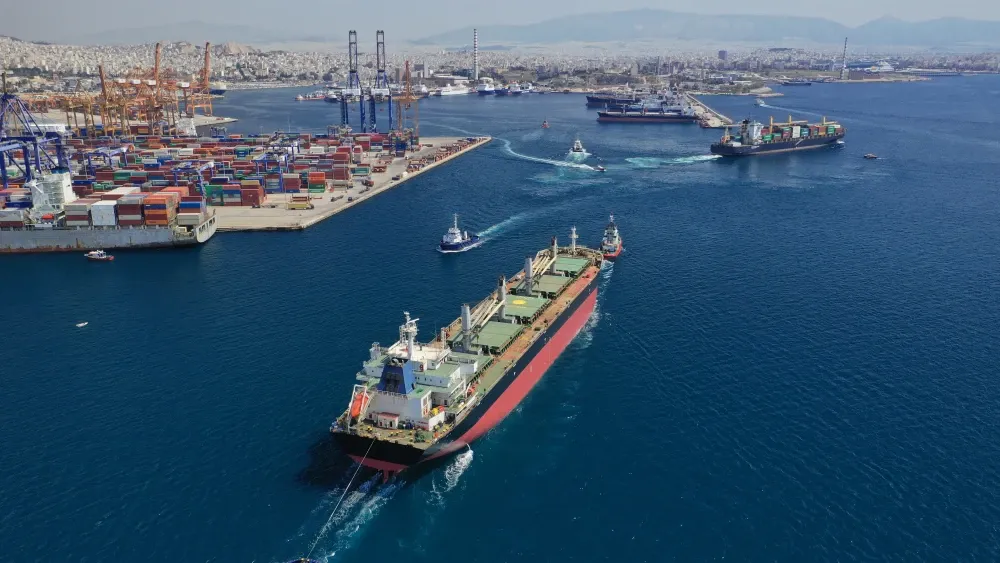 By: Nicoletta Kouroushi The Red Sea is no longer a secure trade corridor as Houthi attacks on vessels, especially those Greek-owned, escalate. Why it matters: Greek shipping controls over twenty-one percent of the world's cargo-carrying capacity, making it a critical player in global trade. The targeted attacks by the Houthis are strategically aimed at disrupting this. -
Recent incidents, such as the attacks on the Magic Seas, Eternity C, and Vilamoura, highlight the deliberate focus on Greek-owned vessels. -
These attacks on Greek shipping serve to damage Western-linked trade, while avoiding actions that might provoke full-scale military retaliation. The big picture: Disrupting maritime corridors like the Suez Canal shifts focus to land routes and logistics hubs under tighter state control, potentially benefiting rival powers. What's next: This emerging vulnerability cannot be addressed by rerouting ships alone. It requires coordinated political response—and that begins with the United States. -
The United States long has been the guarantor of freedom of navigation and a key partner of Greece. But its recent redeployment of naval assets away from Red Sea patrols creates a vacuum. -
European forces have not filled the gap. With no deterrent in place, adversaries exploit the opportunity. To read the full article, click here. | | Yemen's Presidential Leadership Council Failed. Dissolve It  By: Michael Rubin American politics may be polarized, but Yemen's Presidential Leadership Council exemplifies a flawed model of forcing extremes together in the name of democracy. Why it matters: Yemen's current political structure, dominated by self-interested officials living abroad, undermines stability and governance. -
The Presidential Leadership Council, formed post-President Hadi's resignation, is more focused on personal gain than national policy, with members often residing in Egypt or Saudi Arabia. -
This structure allows the northern government to stifle southern progress, preventing South Yemen from utilizing its oil resources and developing its infrastructure. The big picture: A federal model where a president with two vice presidents—one from the north and one from the south—could provide a more balanced governance. What's next: Effective diplomacy requires calibrating strategy to reality and recognizing and recovering from failure rather than doubling down on it. -
If Northern Yemenis fear southern secession, the answer is not to promote the dysfunction of the Presidential Leadership Council but rather to find a federal model that works, one in which northerners cannot dominate the south, or vice versa, and in which all politicians live in the country they theoretically serve. To read the full article, click here. | | MEF Action Alert: Urge Congress to Protect Syrian Minorities from Sunni Islamists  Syria's Alawite and Druze communities, along with Christians, Kurds, and other vulnerable minorities, face under the Hayat Tahrir al-Sham (HTS)-led government. From July 14 to July 17, the Syrian Observatory for Human Rights has documented 516 deaths in Suweida, including 86 Druze murdered in "field executions" carried out by government forces or allied militias. Reports detail looting, burning of homes, and humiliation of Druze leaders, with videos showing government-affiliated fighters desecrating Druze symbols. In March 2025, Reuters reported over 1,500 Alawites killed in coastal cities by Syrian security forces and affiliated militias. These acts fuel fears of genocide against Syria's minorities, exacerbated by HTS's jihadist roots and failure to curb sectarian violence. Congress must act swiftly to address this crisis. Renewing sanctions against the HTS-led government would pressure it to halt abuses and protect minorities. Supporting Israel's targeted strikes to defend the Druze, as seen in Suweida and Damascus, is critical to deter further aggression. Opening a humanitarian corridor into Jordan would provide safe passage for displaced civilians, addressing the dire needs of 16.5 million Syrians requiring aid in 2025. Your voice can make a difference. By joining our campaign, you'll send letters to Congress urging immediate action to stop the killings, protect vulnerable communities, and ensure humanitarian relief. The Alawites, Druze, and other minorities deserve safety and justice. Without intervention, sectarian violence risks destabilizing Syria further, threatening millions.
Click here to sign up for our letter-writing campaign to demand Congress intervene on behalf of Syrian minorities. | | Joel Parker on Syria after Assad: Shifting Sands  By: Marilyn Stern In a recent MEF Podcast, Joel Parker from the Moshe Dayan Center highlighted the challenges facing Syria's new leadership under Ahmed al-Sharaa. Why it matters: The ousting of Bashar al-Assad in December 2024 by Hay'at Tahrir al-Sham (HTS) led by Ahmed al-Sharaa, marks a significant shift in Syria, but the country remains unstable and violent. -
Al-Sharaa's insistence that Syria's governance was to be centralized, despite the presence of disorganized armed militias, was in name only because al-Sharaa's new government did not have "a legitimate monopoly of violence over every part of the border." The big picture: Syria's internal dynamics remain fraught with sectarian tensions, including Sunni supremacism and violence against the Druze, Alawite, and Christian minorities, plus economic challenges. What's next: Israel's military response to Syrian troop movements near its border reflects the precarious balance of regional power. To read the full summary and watch the podcast, click here. | | Why the U.S. Must Support a 'Freedom Corridor' for Kurds, Druze 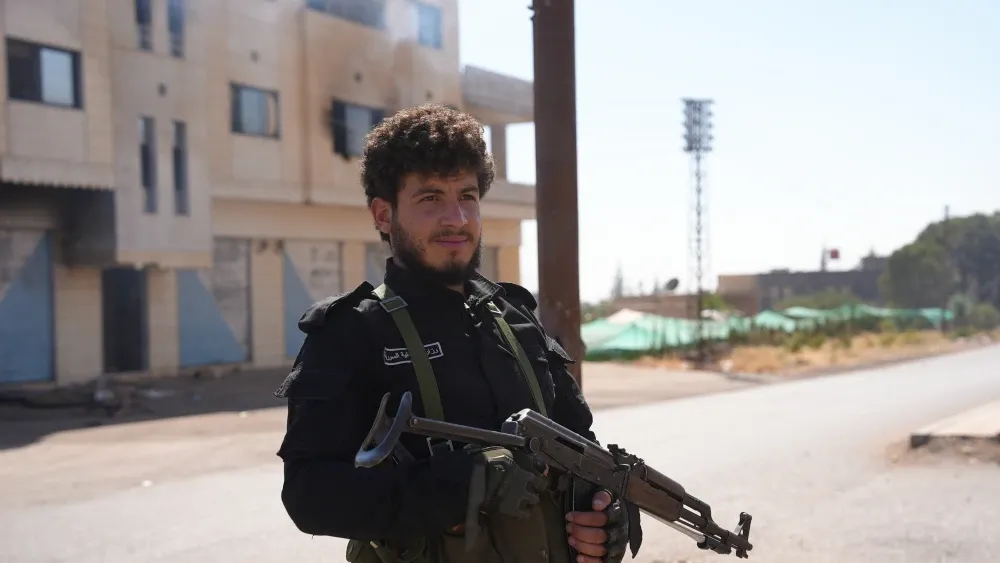 By: Loqman Radpey The latest violence in Syria reveals a stark truth: the regime under President Ahmad al-Sharaa is incapable and unwilling to unify the nation or protect its minorities. Why it matters: The Druze demand for a "freedom corridor" highlights the regime's negligence in safeguarding vulnerable communities, exposing its hollow promises of unity and federalism. -
The Syrian government's continuous targeting of minorities like the Druze reflects a deliberate disregard for human rights and stability. -
Establishing the corridor would not only protect minorities but also counter Iran's influence by blocking its land route. The big picture: The regime's ineptitude creates a power vacuum that threatens to plunge Syria into deeper chaos. -
The "freedom corridor" would redefine Syria's political landscape, connecting resilient, secular populations like the Kurds and Druze, offering them a chance to shape their future away from Assad's failures. What's next: The U.S. and Israel must urgently support the corridor's implementation to secure their strategic interests and protect allied communities. -
Each week of inaction leads to more bloodshed, more displacement and more lost ground to extremist fighters. There is a moral case, there is a strategic case and there is now a political opening. The freedom corridor must move from proposal to policy before it is too late. To read the full article, click here. | | Peshmerga Should Retake Territory Lost After the 2017 Kurdistan Referendum 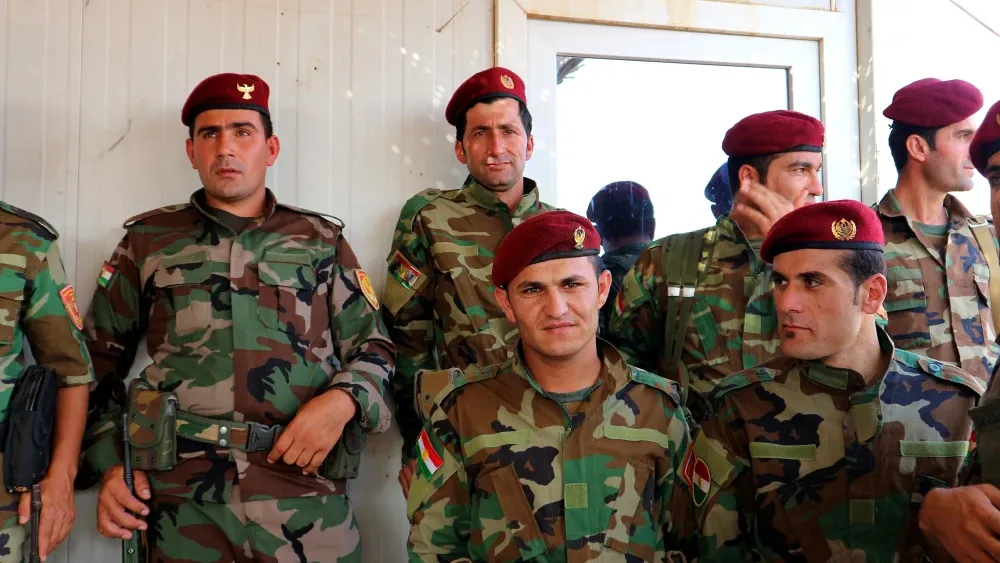 By: Loqman Radpey Iran's recent setbacks present a unique window for the Kurds to reclaim lost territories, especially in Kirkuk, Iraq. Why it matters: The Popular Mobilization Forces' offensive against Kurdish oilfields highlights the ongoing threat, but also exposes Baghdad's weakened position. -
With Iran distracted and its proxies in disarray, the Kurds have a rare chance to act on their constitutional mandate under Article 140 of the Iraqi constitution. -
The international environment is currently less hostile to the Kurds, providing a strategic opening. The big picture: The division within Kurdish leadership, alongside temporary agreements with Baghdad, has so far prevented decisive action. -
A swift, coordinated move by the peshmerga, backed by a strategic communications campaign, could strengthen the Kurdistan Regional Government's position. What's next: The peshmerga should prepare a swift, coordinated move to retake Kirkuk and other key areas. This should be done with a strategic communications campaign that frames the move as a step toward fulfilling constitutional obligations and protecting Kurdish populations. To read the full article, click here. | | Thank you for relying on the Middle East Forum for up-to-date analyses of the region. If you enjoyed this issue of the MEF Dispatch, please forward it to a friend. We invite you to use the comments feature to let us know your thoughts on the Dispatch and the issues we cover. Sincerely, Winfield Myers
Managing Editor, Middle East Forum
Director, Campus Watch | | | | Was this edition useful?  

Your email will be recorded and shared with the sender |        MEF, an activist think tank, deals with the Middle East, Islamism, U.S. foreign policy, and related topics, urging bold measures to protect Americans and their allies. Pursuing its goals via intellectual and operational means, the Forum recurrently has policy ideas adopted by the U.S. government.
Copyright © 2024 Middle East Forum, All rights reserved.
Our mailing address is:
Middle East Forum
1650 Market Street, Suite 3600
Philadelphia, PA 19103 | | | | | Powered by 
| | This email was sent by Middle East Forum via Axios HQ | | | |
0 коммент.:
Отправить комментарий